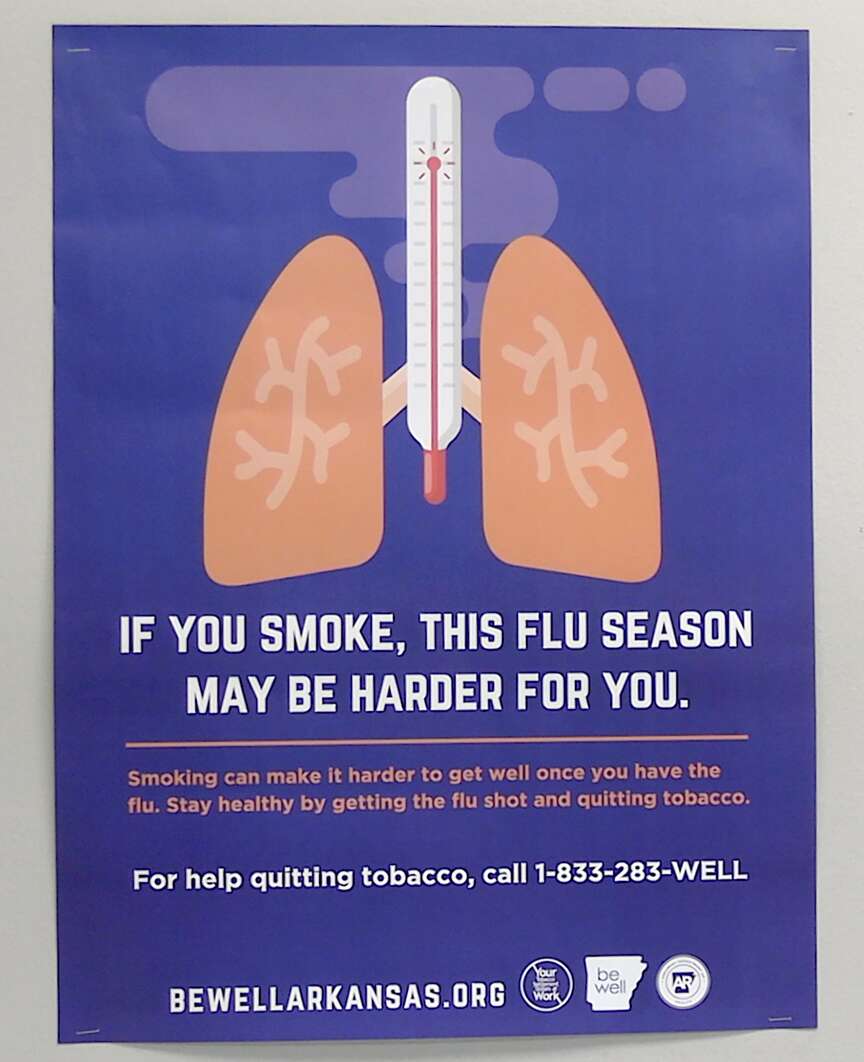CHI St. Vincent Hot Springs and Be Well Arkansas are asking Arkansans to take part in a free 12-week smoking cessation class called "Smoke No More in 24."
Starting Jan. 3, the class will be held each Wednesday from noon to 1 p.m. at CHI St. Vincent Cancer Center, located on the hospital campus near the intersection of Werner Street and Higdon Ferry Road. The classes will feature a 30-minute presentation from a different speaker each week, including "individuals from Be Well Arkansas, the American Lung Association, the American Cancer Society and CHI St. Vincent," a news release said.
"For those looking to quit smoking, you are not alone; we are here to help," Dr. Doug Ross, CHI St. Vincent Hot Springs president, said in the release. "This class will provide smokers with the tools and support needed to succeed in their journey to be smoke-free in 2024. We encourage and urge smokers to participate in this lifesaving class and to begin the New Year creating a healthier version of themselves."
Video not playing? Click here https://www.youtube.com/embed/SB5gKI_VGtY
Be Well Arkansas will also be helping participants with access to nicotine replacement gum or patches, the release said.
Dr. Jovan Gayle, a pulmonologist at the hospital who is also scheduled to be the first of the speakers for the class, said one of the first things he encourages patients who are smokers to do is to quit.
"We have a lot of patients who come to us, and they might have problems," he said.
"They may complain of shortness of breath, things like cough, but there may even be some that unfortunately get referred because of suspicion of lung cancer.
"Now, all of those things that I mentioned before are associated with smoking, and certainly for things like a chronic cough and things like shortness of breath, especially when associated with COPD, the most effective thing that we can do is to get them to quit smoking, if they are still smoking. There are other things that we focus on. We might discuss inhalers, we might discuss additional therapy, we might discuss pulmonary rehabilitation, but none of those things is as effective as quitting smoking."
Smokers are also at higher risk of contracting respiratory diseases, including influenza, COVID-19, pneumonia or the cold.
"Smoking suppresses the immune system," Gayle said. "Generally, this is why the CDC recommends getting a shot to prevent pneumonia ... if you're a smoker. If you smoke, you're going to have that increased risk of getting pneumonia, and as I said, this risk is increased during the cold and flu season. So again, if you're smoking, the best thing we can get you to do is get you to quit and then also, if appropriate, to get the appropriate vaccines for pneumonia."
According to the Centers for Disease Control and Prevention, one-fifth of Arkansans smoke cigarettes, which Gayle said leads to many health issues.
"Arkansas is one of the states where there is a heavy smoking burden," he said. "Certainly a lot of people smoke cigarettes, and that has multiple contributions to multiple negative effects on the health. Again from the cardiovascular side, it decreases your cardiovascular function and increases your risk of coronary artery disease, strokes, etc. On the pulmonary side, it decreases your lung function (and) leads to things like shortness of breath, risk of COPD and importantly, lung cancer."
Smoking also leads to health issues for others as well, especially for children, Gayle said.
"In the younger age groups especially they are more prone to airway disease because the airways have not finished developing, and they tend to be smaller," he said.
"And what you can see with them is what some people call a reactive airway dysfunction syndrome, a condition like asthma where the smoke is an irritant and that triggers a reaction in the child or in the young adult.
"In terms of secondhand smoke and the risk of COPD and lung cancer, it is technically not considered a risk factor officially, but certainly there have been cases that are presented to our clinic where the only exposure is secondhand smoke, but it's a very strong history of secondhand smoke," he said.
"So while it is officially not considered a risk factor, there certainly appears to be some connection there between secondhand smoke and lung disease."
Gayle said smoking is "designed to be addictive," but it is never too late to quit.
"We know that the longer you smoke, the higher the risk of lung cancer is. We don't know where the point where people go from having cancer to not having cancer is, but we know that even if you have been smoking for a very long time, there is still benefit in terms of lung cancer prevention from quitting smoking.
"Certainly, this is borne out in the CDC guidelines. The guidelines for testing, for screening for lung cancer, say that if you're age 50 to 80 and you have been smoking a pack a day for at least 20 years, or it averages out to that, then you're a candidate for screening. Once you are 15 years out from quitting smoking, it is no longer recommended that you do screening. So however old you are or however long you've been smoking, it's always worth it to quit the addiction."
Those interested in participating in the free class can sign up by calling 501-622-1906 or by visiting:
http://tinyurl.com/f96fsw4e

